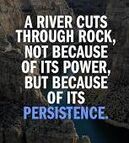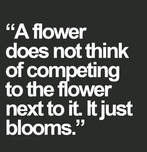We > MeI think Daniel Coyle said it as well as it could be said in his book The Culture Code. His introduction is titled, “When two plus two equals ten”. This is exactly what happens on great teams. The performance of the team defies logic. We are trained to look at the pieces, add them up, and it should equate to the sum of the parts. But, for teams, that is rarely the case.
On some teams, two plus two might equal ten. On other teams, ten plus ten might equal two. And, sure, sometimes two plus two will equal four. The point is, there is something else at play that significantly impacts the performance of your team beyond the talent the team possesses. Why Should We Care? Every leader wants their team to overachieve, perform at a level beyond what their talent should dictate. As leaders, our ability to consistently draw this from our teams is the essence of coaching. It should be the gauge used for awards such as coach or manager of the year. However, like most everything else in society, those are more often given to the team that wins the most or the branch with the highest earnings - with no regard to the team’s performance relative to their potential. There are a few things teams that consistently outperform their talent always seem to have:
REAL TALK - Action Steps This is really the essence of coaching. How to get the most out of your team. Sometimes things work out that way for us and sometimes we fail in our attempt to get the best out of them. Nonetheless, this is the goal for all leaders. Here are a few things that I think enhance your chances of tapping into that unseen potential.
It’s not for everyone. There are a lot of reasons there aren’t a lot of great teams out there. This is one of them. Being on a team that overachieves is tough … and you can’t be tough alone. For more information on building excellence in your teams, visit us at www.bluecollargrit.com. We would love to know how we could help!
0 Comments
Unified: Speak & Act with UrgencyMost would agree that teams need to be unified to be successful. However, what unified means to you may not align with the rest of your team. It’s not enough to say we want to be unified, work together, or have great teamwork. All teams say this.
If you want to be different, you need to articulate what each of your values looks like in action. The behavior that makes your value ‘real’ is the juice that runs your culture. Why Should We Care? Unified is one of my, and our team’s, core values. In the process of uncovering this value I reflected on all of the great experiences I’ve had on various teams. I thought about team accomplishments and failures along with my personal achievements and shortcomings. One of the things that stood out to me throughout my reflections was how much better I was on a team. The stronger, more connected, the team the better I enjoyed it, and the better I performed. This led to a few questions: What does a unified team look like? How do they act? What do they do? Of course, teams that work together do a lot of things. They show up, they talk, they share, they take action, they are unselfish, and many more … all of these are important. They all matter. Here’s the deal with your values though. Everything can’t be of the same importance. If so, you end up with some watered down version of the culture you aspire to have that is a little bit of everything and a lot of nothing. As Lencioni puts it, “If everything is important, then nothing is.” A unified team is urgent. They realize the importance of every moment and are unwilling to waste any of them. Unified teams are willing to speak up when behaviors don’t match the expected standards. They call out hurtful or unproductive actions for the good of the team. Unified teams are comprised of individuals who realize that ignoring damaging behaviors is selfish. When doing so, they are choosing their comfort over the good of the team. Choosing to avoid the discomfort of confronting teammates is not unified. The best teams I have been on, not only speak with urgency, but they also take action. They’re compelled to improve and do not hesitate or delay in doing so. For me, being unified is speaking and acting with urgency. REAL TALK - Action Steps Here are a few ideas on bringing a core value of unified to action. You’ll have to come up with the equivalent to your team .. good luck!
Speaking and acting with urgency is the essence of being unified on our team. When the situation and time requires it, the willingness to say the hard stuff is critical. It’s the time our unity is called into question. Be ready. Don’t flinch. For more information on building excellence in your teams, visit us at www.bluecollargrit.com. We would love to know how we could help! Hold Fast & Stay TrueSociety likes to pull us in all different directions. It has a special knack for making us feel like we need to be something we’re not, sometimes anything we’re not. If we’re into maximizing ourselves and becoming the best version of ourselves we can be, we’ll commit to reflection and growing our self-awareness. We’ll wrestle with our previous setbacks and mistakes in order to improve, then make the adjustments to our lives that increase our chances of being better in the future. And, sometimes it works and sometimes it doesn’t.
We gather all of this feedback from those around us, society. Too often, this audience gives us poor advice. They tell us we need to compete like this person over here or serve our community like this person over here. The comparisons never stop. We always have someone new that we’re supposed to be like. Here’s the deal though. The world doesn’t need anymore people pretending, or trying, to be LeBron James or Mother Theresa - or anyone for that matter. What it needs is real, authentic people that know who they are and what they stand for - and then actually stand for it. Why Should We Care? There are thousands of personal values that may be important to you. Well, guess what. You can’t be all of them. You have to pick what is most important to you. That’s the way life works. At Least for those aspiring to excellence. I suppose if you are willing to fluctuate and adjust your behavior, decisions, and values with each encounter then you may be able to touch on a large number of them. As a matter of fact, that’s exactly how most people go about their lives. And, it’s certainly possible to live a ‘good’ life this way. In my opinion, it’s the impact on others that is missing. By carefully choosing our values, we are telling others what is important to us. By limiting them to only a few, we increase the significance of each. As Pat Lencioni pointed out, “if everything is important, then nothing is.” The fun, easy part of the process is discovering your values. The challenging part is living them … every single day, in every single interaction, and through every single adversity. Holding fast and staying true is the real challenge. REAL TALK - Action Steps So, how do we do it? How do we hold fast to our values when things are really good or really bad - both are equally as challenging? How do we stay true to the person we have said we want to be? I wish I had an easy answer for you, but the truth is it’s hard. And, is exactly why it’s the path less traveled.
Here’s the thing … we’re going to make mistakes. We’re going to mess this up. The key? Pick up the axe, stand up next to the tree, and swing again and again and again. Just keep choppin! That’s how you hold fast and stay true. For more information on building excellence in your teams, visit us at www.bluecollargrit.com. We would love to know how we could help! The Two Sides of CompetitionThe willingness and desire to compete is a necessity in the pursuit of excellence. Competition is a driving force for many people, and can be an extremely positive motivator. However, there are two sides to competition. The side we operate from is based on our purpose and will determine whether we are pursuing excellence or success.
I need to take a moment to define excellence and success: Excellence - the pursuit of your personal best Success - your superiority over someone else based on your comparison with them Notice excellence is NOT your personal best, it’s the pursuit of your personal best. The pursuit is where excellence is. Also notice, success is not process based. It’s outcome, successful or not successful, is based on who you are comparing yourself to. Why Should We Care? The side of competition we are most familiar with, and surrounded by in society, is that of external comparison. The purpose of this side of competition is to win. That’s the measuring stick and how we decide if we are successful or not. Win the game, sell more than my associate, maximize the deal … that’s what winning a competition looks like. This is how much of society is structured and how most people live their lives. The competition is the motivating factor to measure up, prove your worth, or demonstrate your superiority. The comparison gives you immediate feedback on the competition. The other side of competition which is less familiar to us, and is uncommon in society, is that of internal comparison. This side of competition is constantly pulling at the question: did I improve? Basing our assessment of success on this gauge pushes us down the path of excellence. Win? Great, what did I learn? Finish third in sales this month? Great, what did I learn? The constant reflection and focus on growth is contrary to the finality of external comparison. At the root it centers on the process, rather than the result. There is no self-worth tied to results or superiority to be claimed. With internal comparison you are only competing with yourself. REAL TALK - Action Steps Coaches and bosses love team members that are willing competitors. However, there is a difference between the two that must be acknowledged and honored. While the external competitor can often achieve high levels of success, excellence is reserved strictly for the internal competitors. Here are a few thoughts on growing the ability to grow your internal competitor.
I love competitors. There is a pureness to what they bring to a team. They go for it despite the fear of the unknown. They don’t hold back. Ever. Competitors don’t always win, but they are always moving towards excellence. For more information on building excellence in your teams, visit us at www.bluecollargrit.com. We would love to know how we could help! Envy the EnemyAccording to my quick Google search, envy is a feeling of discontented or resentful longing aroused by someone else’s possessions, qualities, or luck. It’s a desire to have something that someone else has. We know it’s not good. We know we shouldn’t do it. But, man, is it hard to guard against.
Our hair, teeth, height, and weight … our car, house, shoes, and clothes … our education, job, income, and profession are just a few potential areas where envy may surface. It’s literally everywhere. And, there’s no escaping it, especially in leadership. Why Should We Care? As a leader, envy blinds us to what we DO have. In a constant desire to have the opportunities, resources, and compensation of others we begin to become ungrateful for our own situation. As we focus on what’s missing from our leadership journey, we miss golden chances to impact the people we are leading. Envy is one of the most common ways to avoid remaining present. As we daydream about how things could be, what others have, and the future we want we are neglecting where we are right now. Envy robs us of our appreciation for the present. It’s not possible to be grateful and envious at the same time. Some attempt to use envy as a motivator to funnel their energy and passion towards something they hope to attain. They try to pass it off as fuel towards a goal, which may provide significant motivation for a time. However, it can never provide the motivation necessary to accomplish any worthwhile goal. The pursuits we value the most will be challenging and take a significant amount of time to accomplish. Our purpose must be driven by our own desire to contribute to others, not our pursuit of what someone else has. REAL TALK - Action Steps Fighting envy is not easy. It’s everywhere, and no amount of previous accomplishment or success makes it go away. Many people are accustomed to looking outside of themselves for answers and guidance, but fighting envy is a strictly internal struggle.
Envy has the potential, and desire, to poison all parts of our lives. Be grateful for where you are, what you have, and who you are. This is the best medicine for envy. For more information on building excellence in your teams, visit us at www.bluecollargrit.com. We would love to know how we could help! |
About bcI'm a teacher, coach, and parent seeking excellence while defining success on my own terms. Archives
April 2024
Categories |






 RSS Feed
RSS Feed